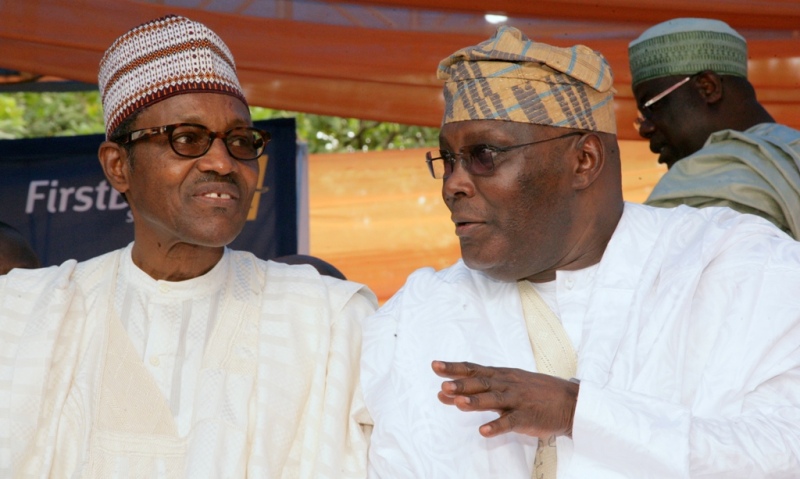The former vice president of the country, Atiku Abubakar has taken another swipe at the incumbent president, Muhammadu Buhari over activities of the Boko Haram sect.
Atiku Abubakar while speaking on Saturday opposed the president’s stand that he has conquered the terrorist group.
The former vice president under the Chief Olusegun Obasanjo administration while speaking in Yola at the 11th Founder’s Day Ceremony of the American University of Nigeria (AUN) held in Adamawa state said: “The insurgents still occupy a specific geographical space.
“They (Boko Haram) still retain the capacity for occasional deadly attacks. Many citizens in the zone still remain vulnerable and live in fear.”
Atiku in his emailed speech further noted that it was too early to claim victory over the terrorist group that has not been completely wiped out.
“We cannot say that the problem is over until every displaced person is able to return home, to the office, to the market, to the farm, and resume normal activities.”
Atiku continued: “We cannot say it is over until we rebuild the schools, the churches, the hospitals, the markets, and the homes that had been destroyed. And we cannot say it’s over until the survivors of this insurgency receive the help they need, including psychological therapy to deal with the trauma that they have been through.
“I visited an IDP camp on Saturday and had the privilege of teaching a math class to some children. But the site of hundreds of children running around and unable to attend school was very gut wrenching. It still breaks my heart.
“So we cannot say the insurgency is over until all the displaced children return to their schools.
“And, as I indicated last year, it would not be enough for people to simply return to their pre-insurgency lives. We must do better than that otherwise we would only have papered over the wound without really treating it.
“People must return to something better, to hope, to improved schools, to improved economic opportunities, to freedom of worship and improved inter-religious harmony.”


